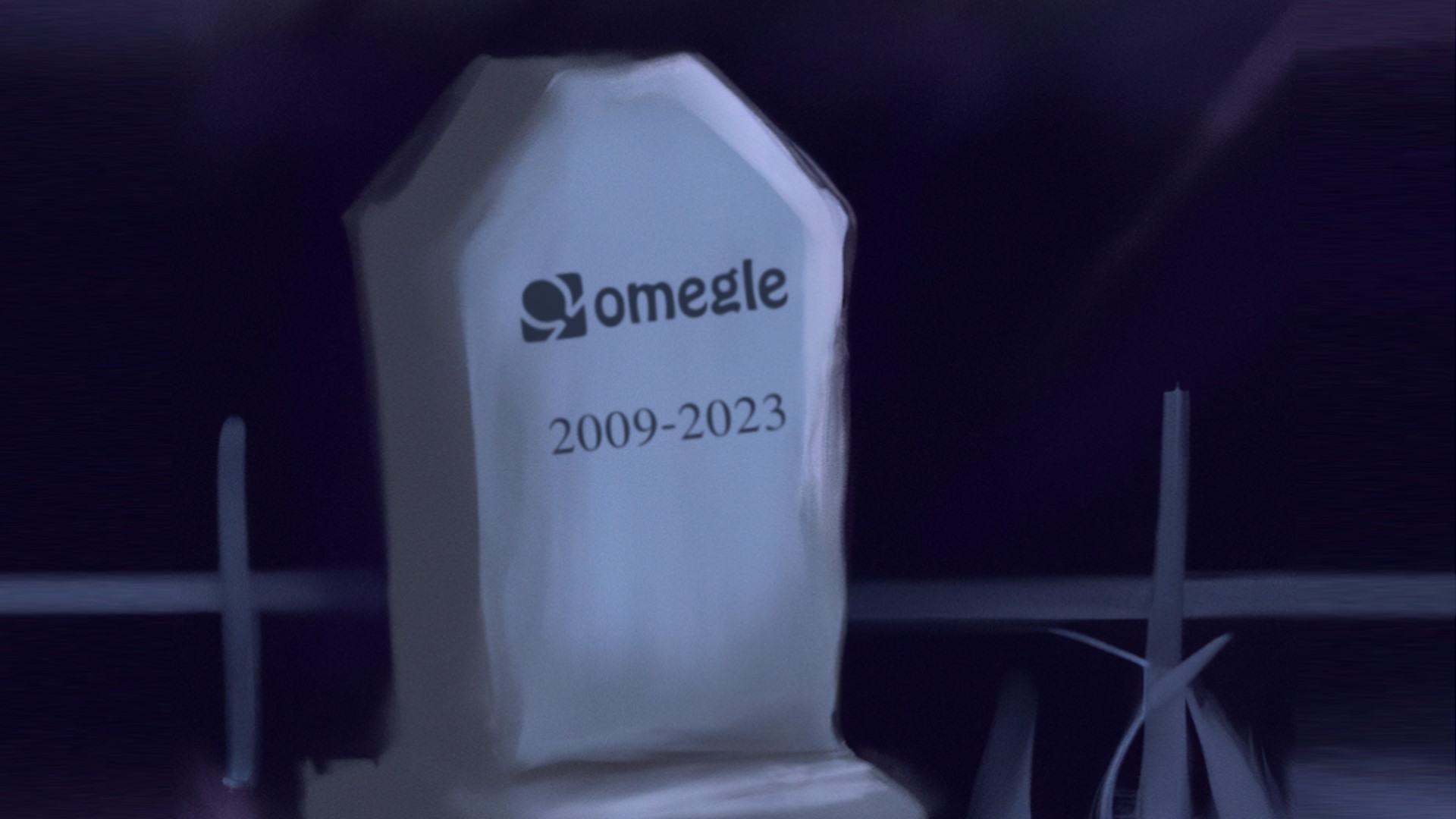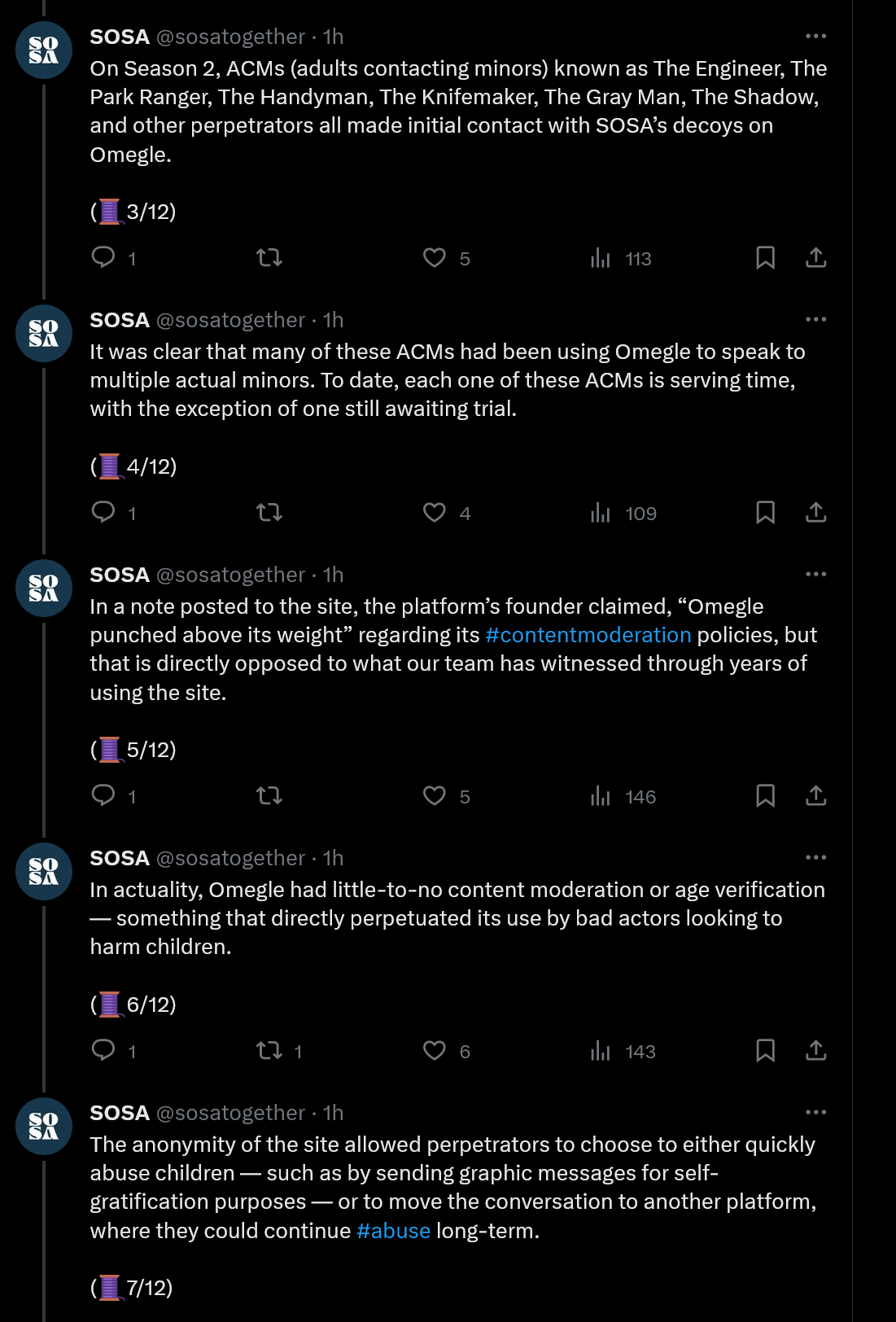
Do you remember Omegle? It launched in 2009 as a chat service with a twist: Instead of picking a server to join or people to talk to, users were randomly paired up for one-on-one chats with anonymous strangers from around the world. That sure sounds like a terrible idea, doesn't it? And sure enough, racism and discrimination, pornography, and child abuse were all persistent problems the site faced. Yet it continued to operate for more than 14 years, until earlier this week when site founder Leif K-Brooks announced that he's pulled the plug.
"Over the years, people have used Omegle to explore foreign cultures; to get advice about their lives from impartial third parties; and to help alleviate feelings of loneliness and isolation," K-Brooks wrote in a lengthy shutdown announcement. "I’ve even heard stories of soulmates meeting on Omegle, and getting married. Those are only some of the highlights."
But he also acknowledged that there was plenty of the opposite, too, writing, "There can be no honest accounting of Omegle without acknowledging that some people misused it, including to commit unspeakably heinous crimes."
Without going into details, K-Brooks said Omegle has in recent years become the subject of "attacks" from users unhappy with its policies and procedures, which is what ultimately drove the decision to close the service.
"The only way to please these people is to stop offering the service," he wrote. "Sometimes they say so, explicitly and avowedly; other times, it can be inferred from their act of setting standards that are not humanly achievable. Either way, the net result is the same.
"Omegle is the direct target of these attacks, but their ultimate victim is you: all of you out there who have used, or would have used, Omegle to improve your lives, and the lives of others. When they say Omegle shouldn’t exist, they are really saying that you shouldn’t be allowed to use it; that you shouldn’t be allowed to meet random new people online. That idea is anathema to the ideals I cherish—specifically, to the bedrock principle of a free society that, when restrictions are imposed to prevent crime, the burden of those restrictions must not be targeted at innocent victims or potential victims of crime."
K-Brooks didn't cite any sources of those attacks, but an organization called SOSA—Safe from Online Sex Abuse—that produces a TV series called Undercover Underage said on Twitter that the shutdown was "largely due to backlash regarding the frequency at which young users experienced online sex abuse on the platform." It also appeared to claim some credit for making it happen.

"Outside of what you see in our docuseries, we’ve worked with young people who had been groomed and abused on Omegle—all the while their perpetrators benefited from the anonymity and access Omegle offered," SOSA tweeted. "We hope our choice to highlight Omegle on UndercoverUnderage educated parents/caregivers on its dangers and helped push the Omegle founder to the decision to shut it down."
It's entirely possible that SOSA's efforts helped force the Omegle shutdown, but K-Brooks clearly doesn't see the closure as a win for the good guys. "I’ve done my best to weather the attacks, with the interests of Omegle’s users—and the broader principle—in mind," he wrote. "If something as simple as meeting random new people is forbidden, what’s next?"
Despite its relatively advanced age, Omegle saw a resurgence in popularity around 2020, driven at least in part by the Covid-19 pandemic, which left large numbers of people stuck in their house and bored. "I’ve seen the same people for the past several months and done the same things,” YouTuber Cole Giannasca told the New York Times. "The newness and the possibility of meeting anyone in the world seemed so much better now than it would have before quarantine." That uptick continued into 2023, as did the problems that naturally came with it: As The Justice put it earlier this year, "The best (and worst) people on the internet" continue to use it.
But no longer. At this point, K-Brooks wrote, the "stress and expense of this fight" against both critics of Omegle and those who abuse it, are too much to deal with, financially and physically: "Frankly, I don't want to have a heart attack in my 30s."
In his conclusion, K-Brooks said he worries that the internet as we know it is headed for extinction. "In its place, we will have something closer to a souped-up version of TV," he wrote. "Focused largely on passive consumption, with much less opportunity for active participation and genuine human connection." He also asked supporters to donate to the Electronic Frontier Foundation, "an organization that fights for your rights online."







